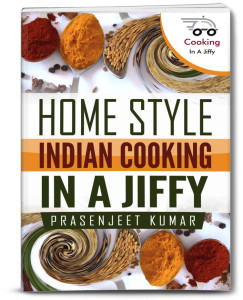Kindle Unlimited—Some Strange Things You May Not Know
- By Prasenjeet
- September 3, 2016
- No Comments

To be sure, all kinds of horror stories have been circulating about Kindle Unlimited on the internet for quite some time.
But a bit of history first.
The self-publishing world is firmly divided in to two camps: One in favour of exclusivity, for Amazon, which is undoubtedly the biggest gorilla of the book selling universe. This means an enrolment in to KDP Select and thereby in to Kindle Unlimited. Automatically.
The second camp favours casting its net wide, to Apple, Barnes & Noble, Kobo, Google Play, Smashwords, etc. In addition to Amazon, of course.
Kindle Unlimited started in August 2014. All authors, who were then enrolled in KDP Select, were promised a fixed royalty of $1.50 per borrow. That is, even if your books were not “sold” but only borrowed, you still got $1.50 per borrow.
This rate went down to $1.34 pretty soon, as my royalty reports indicated later, but that’s another matter. Incidentally, it didn’t matter whether your book was 5 pages or 500. It also didn’t matter whether your book was priced at $2.99 or $5.99. All authors enrolled in KU made the same amount per borrow. It was reported that some authors like H.M. Ward consequently saw a drop of 75% in their income. All thanks to KU 1.0.
The authors who wrote longer books protested at this apparent discrimination. So in August 2015, Amazon decided to pay authors in terms of “pages read” instead of a fixed royalty. The new system should have benefitted authors who wrote longer tomes than those who wrote shorter books.
But strangely, catastrophe struck again. Some authors reported their monthly sales dropping from tens of thousands of dollars to a few hundreds. This was KU version 2.0.
I think we all are familiar with these two stories.
But that’s not the topic for today. I wanted to share some other hidden dangers of KU with you which you may not be familiar with. At least I wasn’t.
So here is the horror story…
A few months back, while checking up my KDP sales, I noticed that my cookbook The Ultimate Guide to Cooking Lentils the Indian Way had 25 pages read (the technical term is KENP) in the Kindle UK store. I was shocked. Because the book was NOT enrolled in KDP Select since April 2015. That is, for more than a year my book had been outside KDP Select/KU. Then how was it possible that my book had 25 pages read?
Panic set in.
Did I accidentally enrol my book in KDP Select? If so, I was in deep trouble. I blamed myself. I must have done something silly, I thought.
Like hitting the “Enroll” button instead of change royalty, pricing and other options. Or, or, or…. All kinds of scenarios played in my mind.
I went to my “bookshelf” and looked at the book closely. It said, “Enroll in KDP Select” which meant that the book wasn’t so enrolled. Phew! I took a sigh of relief.
But the mystery remained unsolved. How come the KDP dashboard was showing 25 pages read for a book which was not enrolled in Kindle Unlimited?
Was Amazon extending some special benefits to me, a non-KDP Select author, which it did to no one else? Maybe Amazon had changed its policy overnight and enrolled all books published through KDP into Kindle Unlimited irrespective of whether you were or were not enrolled in KDP Select. I knew some publishers could enrol their books in Kindle Unlimited, without providing any exclusivity to Amazon, so this scenario seemed plausible for a moment.
But I knew I couldn’t be so lucky.
What could be the other reason? Technical glitch? Quite a possibility.
So I wrote a polite e-mail to Amazon to solve the mystery behind the pages read.
Within 24 hours, I received a standard reply that they had forwarded my e-mail to their Technical team to look into the matter.
A few days later, I received another e-mail from Amazon explaining what had really happened. It went something like this:
“I was in constant touch with my Technical team and they have confirmed:
It may take months for customers to read pages in your book, but no matter how long it takes, we’ll still show the count. This is true even if your KDP Select enrollment period has expired, and you choose not to re-enroll.
Hence, the pages read showed up on your reports section.”
The e-mail explained it all. Somehow I was under the mistaken impression that readers could borrow your books in KU for a limited time. If the books weren’t read in that period, they were “returned” just as it happens in a library. A simple step to prevent hoarding. Nope. I was wrong.
My book wasn’t in KDP Select since April 2015, I repeat. This means that some reader downloaded my book a year ago (or maybe more) and was reading the book now!
An eye opening revelation.
In a way it was a good thing that I was still getting paid for books borrowed in KU a year ago. But it also meant that:
Your readers can download your books for FREE and may never open it. That’s possible in KU. It’s like a FREE sale or a “FREE book promotion” then. The only difference from a FREE book promotion is that you will never know how many free downloads you have had.
At least in a free book promotion, you have some control. You can choose the time and the duration of the promo. With KU, you have no such luck.
If you have enrolled your books in KU and wondering about the lack of sales, the chances are—you may be getting downloads but no one is opening your books, as happens in a FREE book promotion.
Most FREE books never get read. Everyone knows that. I too have an awful lot of free books stuffed in my Kindle which I have never bothered to open nor will do so in the foreseeable future. Worse, I don’t even remember the name of the authors or the titles downloaded.
Harsh truth about FREE books! That’s why, I now vote against the strategy of running any FREE or PERMAFREE campaign for your books.
If you are a victim of KU, therefore, I strongly suggest that you opt-out and expand your retail reach to all available platforms.
That is, if you think you are running a business and NOT a charity!






























Leave a Reply